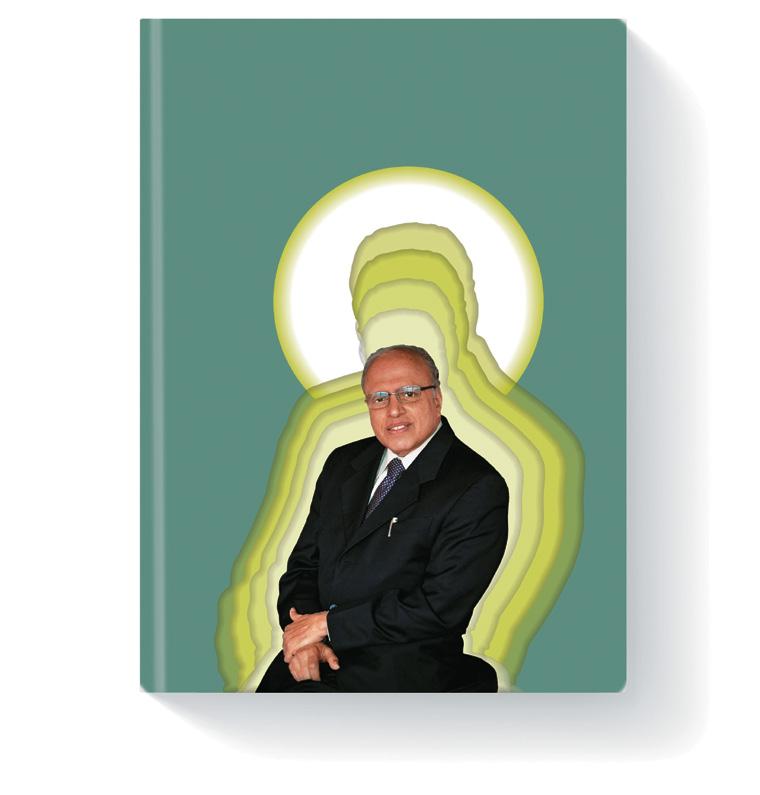Versuchen GOLD - Frei
THE MAN WHO SCRIPTED INDIA'S WIN OVER HUNGER
Outlook Business
|December 2023
Having left the pursuit of medical studies to be an agriculturist, M.S. Swaminathan is credited with the success of the Green Revolution in India that dealt with the country's food scarcity, turning it from a 'begging bowl' into a 'bread basket'

The success of his works is not restricted to their academic excellence; it lies in the impact they have had outside the laboratories, in the farms and the fields. His work narrowed the gap between scientific knowledge and its practical application.
He consistently advocated for sustainable agriculture, emphasising the delicate balance between human advancement and ecological sustainability.”
—Prime Minister Narendra Modi, in his tribute to M.S. Swaminathan
From being once seen as a country surviving “ship to mouth”—a reference to its dependence on imported foodgrain—to becoming the second largest producer of wheat and rice in the world, India has come a long way, thanks to the Green Revolution of the 1960s that introduced several reforms in the agriculture sector. Its rice and wheat exports in 2021–22 touched $9.65 billion and $2.19 billion.
Spearheading this revolution in the country was Mankombu Sambasivan Swaminathan, a cytogeneticist with a doctorate degree in genetics from Cambridge University and a post-doctoral fellowship from the University of Wisconsin, who became popular as the father of the Green Revolution in India.
Born in Kumbakonam in 1925, to Dr M.K. Sambasivan and Parvati Thangammal, Swaminathan has been credited with rescuing India from the famine in the early 1960s. However, the change he brought about was the result of much more than just a response to a clarion call by the government to deal with the severe food shortage. After the Bengal famine in 1942–43, Swaminathan decided to study agriculture, walking away from familial expectations that he would follow the footsteps of his surgeon father.
Diese Geschichte stammt aus der December 2023-Ausgabe von Outlook Business.
Abonnieren Sie Magzter GOLD, um auf Tausende kuratierter Premium-Geschichten und über 9.000 Zeitschriften und Zeitungen zuzugreifen.
Sie sind bereits Abonnent? Anmelden
WEITERE GESCHICHTEN VON Outlook Business

Outlook Business
Desperate in Davos
With the US and China roiling global trade, it is platforms such as WEF where smaller economies can make new and stronger friends
6 mins
February 2026

Outlook Business
The Long Game
Karnataka's IT supremacy once again helps it secure pole position among states. But it is not resting easy on its laurels, but making a push for the future by focussing on hardware
3 mins
February 2026
Outlook Business
India Can't Copy China EV Script
For decades, economic historians have lamented that India 'missed the bus' of the Third Industrial Revolution.
3 mins
February 2026

Outlook Business
Build Capital For AI
India needs a sovereign wealth fund (SWF) to invest in artificial intelligence (AI) and deep tech globally, and we need it now.
4 mins
February 2026

Outlook Business
An Area of Darkness
Ignored by VCs, start-ups in Tier-Il and III cities aren't finding the growth capital and talent to scale up into large businesses. And that is a cause for concern
5 mins
February 2026

Outlook Business
India's Al Story
India does not have an artificial intelligence (AI) talent problem. It has a go-to-market problem. Over the past two years, there has been a visible rise in Indian founders building serious AI products across application layers, infrastructure and open source.
3 mins
February 2026

Outlook Business
A Quiet Revolution
The farther the destination, the deeper the delight of the trek, however difficult, wrote freedom fighter and Urdu poet Bismil Azimabadi about revolutions.
4 mins
February 2026

Outlook Business
Business Cycle Mutual Funds - Navigating Global and Domestic Cycles
It's a globalized world. Indian businesses today operate in environments where global factors like trade flows, geopolitical developments, cross-border regulations and international capital movements influence their costs, competitiveness, and growth prospects.
2 mins
February 2026

Outlook Business
Capital Wears the Crown
Delhi emerges as India's leading start-up city with a quieter, less-crowded ecosystem compared to high-decibel Bengaluru
3 mins
February 2026

Outlook Business
The Rise of Consumer AI
Artificial intelligence (AI) has become a significant part of consumer reality.
3 mins
February 2026
Translate
Change font size

